The emperor’s new clothes
Sharifs' defence was so unbelievable that all five judges were not satisfied with the explanations
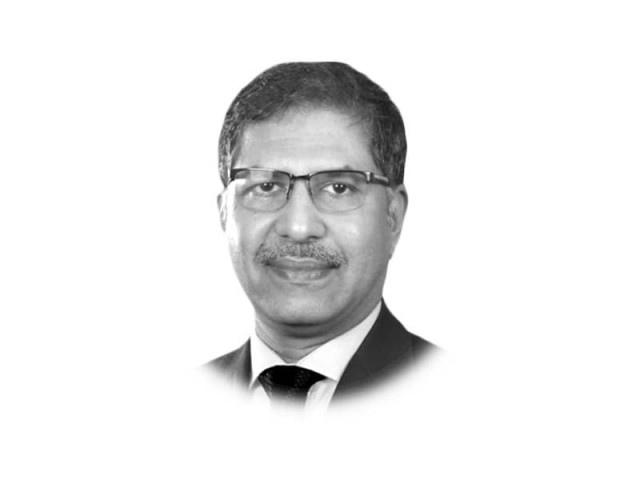
The writer is a practising advocate at the Supreme Court, and a former president of the Supreme Court Bar Association
The first question was whether the defence set up by Nawaz Sharif and his children was acceptable to the court? The prime minister clearly wanted a verdict of acquittal and that is why his lawyers and that of his sons tried to convince the court that the London apartments were purchased with clean money generated from the sale of steel mills abroad and investments made with a Qatari family. Had they succeeded in convincing the judges that they had even a reasonable chance that their story was true, the judges may have dismissed the petition.
However, it appears that the tale was so unbelievable that all five judges were not satisfied with the explanations offered and rejected the defence. The version of the Qatari prince could have been told to a sleeping child but putting it before the Supreme Court was catastrophic and for this reason Sharif and his family lost credibility of truth before the court. On this first issue the opinion of all judges is unanimous.
Justice Ijazul Ahsan was of the view that the lawyers of the Sharifs had not answered most material questions, failed to justify the manner in which the properties came into their possession and did not disclose the source of funds. He stated that, considering the prime minister’s high office, it was necessary for him to place all information before the court, and regretted that in spite of declaring before the nation that he would clear his name, this was hollow rhetoric and no effort was made to place true facts.
Justice Asif Khosa was especially perturbed by the statement from Qatar which, according to him, established beyond doubt that speeches made by Sharif were not the whole truth. He regarded that the speech and defence put up before the court were “mutually destructive” and, as regards the source of funds, “the truth was being improved upon, moulded and sacrificed at the altar of expedience.” He came to the conclusion that the Qatari letter was a lie, the defence version “amazing and unbelievable” and the explanations offered “evasive and untrue”, while the fortune amassed is “huge and yet no bank account has been identified, no receipt produced and no money trail established”. For him, this proved that they all have resorted to “concealment”, which points to a “guilty mind and conscience”.
Justice Gulzar Ahmed concurred with Justice Khosa. He asserted that the children could not have been so “innocent or naïve” as to not know the owner of the flats in which they had been constantly living. He relied on the various TV interviews of the children and declared that the contradictions were obvious.
Justice Azmat Saeed as well came to the conclusion that documents had been deliberately withheld from the court and the versions presented by Sharif and his family were not confidence inspiring. He felt that the possibility of Sharif’s nexus with the London apartments, and his equitable and beneficial interest therein could not be ruled out.
Justice Ejaz Afzal Khan was the most restrained but he too concluded that sufficient material had surfaced on the record, which prima facie shows that Sharif acquired assets in the early 90’s that were disproportionate to his known means of income.
Each of the five judges concluded that the defence story contained contradictions, was bogus and there had been concealment from the court. Therefore, the unanimous verdict was that Sharif “appears” to be guilty of corruption for not disclosing the truth, which did not inspire confidence.
The second question pertained to what action is to be taken against Sharif? Here, there was a difference of opinion: 3 against 2.
Justices Khosa and Ahmed came to the conclusion that because Sharif had not spoken the truth about his assets, he was not ‘Ameen’ and could be disqualified under Article 62 of the Constitution. Both felt that there was no need for further evidence. This, according to me, was a moral judgment.
Justices Ahsan, Saeed and Khan exercised judicial restraint in ruling that, for the time being, it would be appropriate to send the case for further investigation. They ruled that an opportunity for fair trial must be given; therefore, a JIT should be formed. They postponed taking any action till the conclusion of the JIT report. In my opinion, the JIT is in essence an investigative commission to, inter alia, collect evidence and give a final report to enable the court finally to take appropriate legal action.
The major ambiguity in the judgment is with regard to the JIT. There have been two gaps left open: first, the ambiguous nature of the JIT and second, the lack of ToRs. If JIT’s members are directly or indirectly under control of the PM, then apprehensions as to whether they will be able to independently perform the functions entrusted to them are valid.
The million-dollar question is what next?
The overall judgment can be termed a charge sheet against the sitting premier and his family. Bolstered by the unanimous opinion that the PM is guilty of taking a defence which the judges have not believed, all political parties seem to be getting together on one agenda: Sharif should resign.
Keeping in view these developments, the role of the Supreme Court, in the coming months, may now be secondary. Ultimately, the decision of the Panama issue will be influenced by street power. Sharif, on the other hand, from a legal and moral angle, must re-examine his strategy. His room to manoeuvre before the JIT will be very limited. The Qatari story has been doubted by the Supreme Court. Sharif does not have the option to change it as that will be regarded as an afterthought, and if any new document is produced before the JIT, it will be considered a fabrication.
But does the public have patience to wait for the JIT report? The war of words by leaders and the excitement and effect on the crowd are a herald of coming difficult days for the ruling party. Perhaps it is only elections which will determine the existence, or lack thereof, of the emperor’s clothes.
Published in The Express Tribune, May 11th, 2017.
Like Opinion & Editorial on Facebook, follow @ETOpEd on Twitter to receive all updates on all our daily pieces.








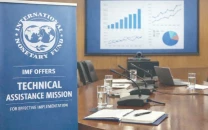

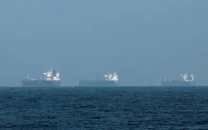
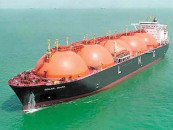
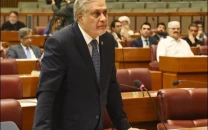


COMMENTS
Comments are moderated and generally will be posted if they are on-topic and not abusive.
For more information, please see our Comments FAQ